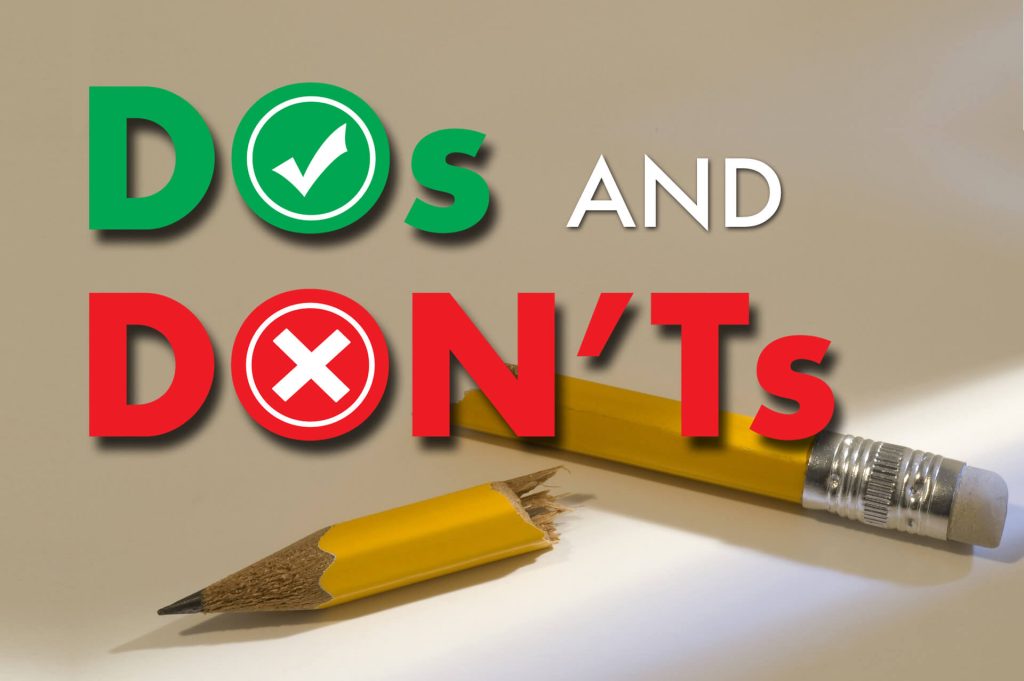LAST UPDATED AUGUST 2, 2024
So you’re thinking of hiring a copywriter?
Good decision!
A skilled copywriter will add value and clarity to your communications.
But how do you go about finding and choosing a copywriter who’s right for you and the best fit for your project?
Where to find a copywriter
First thing’s first: where can you find a copywriter?
There are a number of places you can look. But there are a lot of copywriters out there, they’re all different, and unless you know exactly what you’re looking for, you’ll be overwhelmed with choice.
So, before you start looking for a copywriter, you need to get more specific about what you need.
How to choose a copywriter for your project
In-house or freelance copywriter?
This will be a decision that’s determined by your needs and budget.
In-house copywriters are primarily hired by creative agencies and by larger companies with larger budgets and a constant need for copy.
Freelance copywriters also work with agencies — and with companies of all sizes, from other freelancers and micro-businesses to high street names and well-known brands.
There are advantages to hiring freelancers, whatever the size of your company.
3 Advantages of hiring a freelance copywriter
1. A freelance copywriter won’t be on your payroll
Most freelancer copywriters work on an as-needed basis, so you only pay them for the work you need them to do.
As they’re not on your payroll, you won’t have to pay them regular employee benefits, like holidays, sick pay and pension contributions, either.
If you need regular work, and want to be able to secure your copywriter’s ongoing availability, you may be able to hire them on a retainer basis, where you pay them a set amount each month.
2. A freelance copywriter will usually work offsite
Freelancers typically work from home, where they have their own workspace and their own equipment. This means you won’t have to find a desk for them or provide them with a computer.
3. A freelance copywriter is an objective outsider
A freelance copywriter will see your business as an outsider — just as your customers do.
With this perspective, they’ll look at your business more objectively, bringing clarity, insight and common sense.
And they won’t shy away from asking the tough questions to discover what makes you tick, what makes you great and what sets you apart from others in your market.
Subject niche or generalist copywriter?
A subject niche copywriter is a copywriter who specialises in writing for a particular industry or on a particular subject.
A generalist copywriter is a copywriter who doesn’t have a specialist subject niche and writes for a wide variety of industries. But rather than being a Jack of all trades, these copywriters have specific advantages, too.

Why choose a subject niche copywriter?
A subject niche copywriter can be advantageous if you work in a complex or heavily regulated industry. Examples of such industries might include agriculture, financial, technical, health, pharmaceuticals and certain manufacturing operations. This is because they already have a good background knowledge of the industry and the customers they’ll be writing for.
Some copywriters work solely or predominantly in their specialist subject niche. And their expertise can be invaluable, so expect them to charge a premium for it.
Why choose a generalist copywriter?
Generalist copywriters often start with the same level of basic understanding as your prospects. They’ll learn as they go, asking all the right questions, until they get to a point of understanding where they can write clearly and confidently.
The can then then break down the information, omitting or explaining any jargon, and writing it simply and clearly, using language your prospects will understand.
Would a specialist be best?

While some copywriters have subject niches, others have copywriting specialisms — and these can also be advantageous for certain types of projects. Here are a few examples:
B2B or B2C copywriters
That’s Business-to-Business or Business-to-Consumer communications. Some copywriters are happy to write both and some specialise in one or the other. The copywriter you’ll need will depend on your audience.
The difference is mainly in the approach. Because B2B purchasing decisions are usually more logical and rational, whereas B2C purchasing decisions tend to be more emotional.
Conceptual copywriters
Conceptual copywriters are skilled in developing fully formed creative concepts, which combine words with images, graphic design and/or other media to create communications.
The concepts can be used in a range of ways, for example:
- In advertising — to draw attention, create interest, inspire desire and prompt action
- In charity fundraising — to highlight issues and create an emotional response
- In public information campaigns — to create powerful, thought-provoking communications.
The conceptual copywriter will come up with the idea for the communication, then write the copy and develop a brief that other creatives can work from.
These copywriters are mostly found in agencies, but freelancers do exist and will typically charge much less for their services. So if you want high-impact communications on a lower budget, a conceptual copywriter could be just what you need.
Conversion copywriters
Conversion copywriters are masters of persuasion, writing compelling sales copy that converts prospects into paying customers. All copywriters write for conversions, but conversion copywriters are often qualified in the discipline and have achieved measurable and demonstrable results.
Direct response copywriters
Direct response copywriting is a style of writing that convinces the reader to take immediate action.
It uses persuasive, customer-focused copy to make an offer and to create a sense of urgency. It then finishes with a strong and irresistible Call to Action that prompts an instant response.
Direct response copywriting is particularly effective in email marketing, on landing pages and in direct mail.
Plain English copywriters
Some copywriters are experts in writing plain English, which can be useful if you have a complex product, idea or issue that you need explaining simply.
Plain English copywriters will break it down into manageable pieces and communicate it in a way that’s easy to read, easy to digest, and makes good sense.
SEO copywriters for websites and blog articles
Search-Engine-Optimised copy is used to help websites and blog articles rank organically on Google.
SEO copywriters are skilled in strategy, keyword research and keyword application to give your website and blog articles the best possible chance of ranking highly, where your prospects will find them.
Tone of Voice (ToV) copywriters
Your brand’s tone of voice denotes how you, as a brand, communicate with your audience.
It’s about the language you use, the rhythm of your words and the way your copy comes across. For example, your tone of voice can make your brand sound upbeat and enthusiastic, cheeky and playful or authoritative and serious.
Tone of Voice copywriters will help you decide how your brand should sound. They’ll then create a Tone of Voice guide that lays this out in practical terms. The guide can be used by anyone who writes for you and it will help to make sure your tone is always consistent and recognisable.
Where to find a copywriter
Now you understand the kind of copywriter you need, you can start looking for someone suitable.
Remember to be specific when you’re searching, so you get the right copywriters for your project.

Good places to start
There are a number of places you can search for copywriters:
ProCopywriters
ProCopywriters is the Alliance of Professional Writers and has listings for more than 650 professional copywriters, so it’s one of the best places to start.
Google search
You can search on Google for the kind of copywriter you want, but you’ll need to be specific as there are quite a lot of us!
There are more than 600 copywriters listed on LinkedIn so, again, you’ll need to be specific about the kind of copywriter you’re looking for.
Online marketplaces
Online marketplaces like Fiverr, Upwork and YunoJuno have lots of copywriter listings. But they tend to be populated with freelancers offering copy and content at very low rates, so it pays to be cautious.
When you’ve found some copywriters who are suitable for your project, you’ll need to choose the person you want to work with.
How to choose the best copywriter for you
Who does the copywriter work with?
Many copywriters know who their ideal clients are and will be looking for clients and projects that are the right fit for them. So they’ll be clear about who they work with and who they don’t.
Some only work with large companies and big brands — with big budgets and marketing departments to brief them.
Some are used to working with smaller businesses. They’ll usually be happy to work with you to help you decide what you need and formulate a suitable brief.
Others work predominantly in niche industries — or with more particular clients, like startups, women or freelancers.
If a copywriter is not explicit about the kinds of companies they work with, you can check their portfolio to see examples of the clients they’ve worked for in the past.
What is their website like?
You can tell a lot about a copywriter from looking at their website.

A good website will give you a glimpse into the copywriter’s brand and personality. It will show you what they’re capable of and should help you make a decision on whether they’re the right copywriter for you.
Look at the presentation:
- Does it have a professional-looking design?
- Is it well-organised and easy to navigate?
- Is the content spaced well and easy to read?
Look at the copy:
- Does it seem friendly, professional and competent?
- Do they seem to understand you and your needs?
- Do they seem interested in you and your business?
- Does it read well and is it persuasive?
Do they have a portfolio of work?
Many copywriters will have work samples on their website to show the kind of work they’ve done for other clients.
Some prefer to send samples on request and will usually select examples that are more relevant to your project.
And some do most of their work under Non-Disclosure Agreements (NDAs), which can prevent them from sharing or discussing it.
If a copywriter doesn’t have relevant samples they can share, they might agree to do a paid test for you.
Work samples can be a good way to assess the:
- Quality of the work
- Ideas and creativity
- Storytelling ability
- Versatility of styles.
But it’s important to remember that the work written for previous clients was following their briefs and fulfilling their needs. And it isn’t necessarily representative of the work the copywriter would do for you.
What is their content like?
Copywriter’s typically write blog content that’s designed to help you.
This might be:
- Answers to Frequently Asked Questions
- Relevant information you might need
- An insight into their services and processes
- Explaining who they do/don’t work with
- DIY copywriting tips if you can’t afford them yet.
A copywriter’s blog can also give a good insight into their brand, their personality and the way they write.
Many copywriters also post content on their social media channels. This is typically shorter and more creative content, so it’s well worth checking those out, too.
Do they have testimonials or case studies?
You’ll usually find a copywriter’s testimonials on their website, on their Google Business profile, on LinkedIn or on Facebook.
This is a good opportunity to see what their current and former clients have had to say about them and their experience of working with them.
Case studies are more in-depth and detail projects the copywriter has worked on. A case study will typically look at the brief given, the copywriter’s response to it and the results the client had.
How to choose a copywriter who suits your needs
How much do they charge?

I know what you’re thinking. The price should have been an earlier consideration.
Well, yes, price will definitely be a factor when you make your final decision. But we need to change the conversation around money, because:
- Copy is an investment in your business rather than a cost
- Good copy will pay for itself many times over, so it will be worth your investment
- Bad copy can damage your reputation and cost you customers.
In other words, it’s better to be choosy and hire the right copywriter for your project rather than the cheapest one you can find.
How do copywriters charge for their work?
This varies from one copywriter to another and the price could be based on:
- The number of words
- The time required — hourly or daily rate
- The type of project and the work/skills involved
- A set monthly fee, known as a retainer, for ongoing work.
Some copywriters will have a rate card detailing their charges for a range of different projects. The charges given are often a ‘starting from’ price or a price range, from and to.
Most copywriters will quote for the work before you start and will require 50-100% of the quote to be paid upfront. For larger projects, they may offer payment plans, where installments can be paid at set intervals
To get your quote, work with your copywriter to define the scope of your project and make sure it includes everything you need.
What are their terms and conditions?
It’s always advisable to check a copywriter’s terms and conditions. And if you go on to work with them, you should do this as a matter of course.
The terms and conditions will explain things like:
- Their process
- Quotations
- Timescales
- Payment terms
- Number of revisions included
- Ownership of copyright.
Are they fair and ethical?
You’ll want to work with a copywriter who has sound ethics and will treat you fairly.
You can get a good sense of this from their website, their T&Cs, their content and their social media.
Getting in touch with your chosen copywriter
How is it best to make the first contact?
When you’ve chosen a copywriter who meets your needs, the next step is making contact.
This should give you an idea of how responsive, communicative and helpful they are.
Not all copywriters accept unscheduled phone calls as interruptions can break their concentration. So it’s usually best to start by sending them an email, filling in the contact form on their website or direct messaging them on social media.
In your message, you should:
- Introduce yourself and the company you’re emailing from
- Give a brief description of your project and what you need
- Ask them if they have availability to take on the work
- Include your current website address, if you have one, for context
- Include your contact details, so the copywriter can respond.
If your first exchange is positive, the next stage is usually to schedule a call, so you can meet your copywriter and discuss the project further.
What questions should you ask them?
Before your call, it’s a good idea to write down any questions you want to ask.
But what should you ask?
Here are some good questions to get you started:
What kinds of copywriting have you done before?
This will give you an idea of the copywriter’s past experience.
What’s your approach/process?
You might want to understand how the copywriter works, particularly if they haven’t worked for your industry before. How do they work if they’ve never written on a subject before? Where do they get their information? How do they verify the quality of their information?
What’s the turnaround time for a project like this?
This will give you some idea of how long the project will take and will be important if you have a deadline you need to meet.
How will you make sure the copy sounds like us?
Every business should have a consistent tone of voice — and you’ll want to make sure your new project is going to sound like all the other copy you have.
What information will you need from me?
All copywriters will need a brief to work from. Some have their own brief and some will ask you to provide a brief. Asking this will help you understand what they’re looking for.
Read my article: What will your copywriter need from you? >>
Who will own the copyright at the end of the project?
If you’ve paid for the project, you should own the copyright, but it’s a good idea to be sure of this from the start.
Can you work with our…?
Your project might be made up of several different elements. For example, you could also be working with a web designer, a graphic designer or an SEO agency. Or you may want your copywriter to work with your in-house marketing team.
How do you get on with them in person?
You’ll usually meet your copywriter during a call — and there are two kinds of initial call:
The free discovery call
A free discovery call is where you meet each other, usually over a video call, and discuss working together. This will typically be a short call and is purely to see if you’re a good match.
On a discovery call, you can gauge if:
- They seem personable and professional
- They’re interested in your business and project
- Their way of working sounds right for you
- You feel reassured, confident and comfortable.
The paid-for consultation
Initial consultations are usually paid for upfront. The copywriter will spend time prepping for a consultation, so they can give you feedback, ideas and suggestions.
The reason these consultations are chargeable is because they involve work for the copywriter and because they’ll be valuable to you, whether you decide to work with that particular copywriter or not.
During an initial consultation, you can see:
- How well they understand your business/industry
- If they ask relevant and sensible questions
- If they make interesting and intelligent suggestions
- If they have a good grasp of what you need
- If you feel confident to continue.
What kind of copywriter do you need?
A copywriting all-rounder?
Allow me to introduce myself!

I’m Jenny Lucas: a generalist copywriter who’s written all kinds of materials, on all kinds of subjects, for all kinds of organisations.
I don’t have a subject niche, but I specialise in conceptual copywriting, SEO website copywriting, SEO content writing, and writing in plain English.
My words have made a real difference to the clients I’ve worked for — and they could do the same for you.
To find out more about me and see if I would be a good fit for your project, visit my main website.
Someone else?
With more than 600 professional copywriters listed, ProCopywriters is a good place to start.
You might also like…



